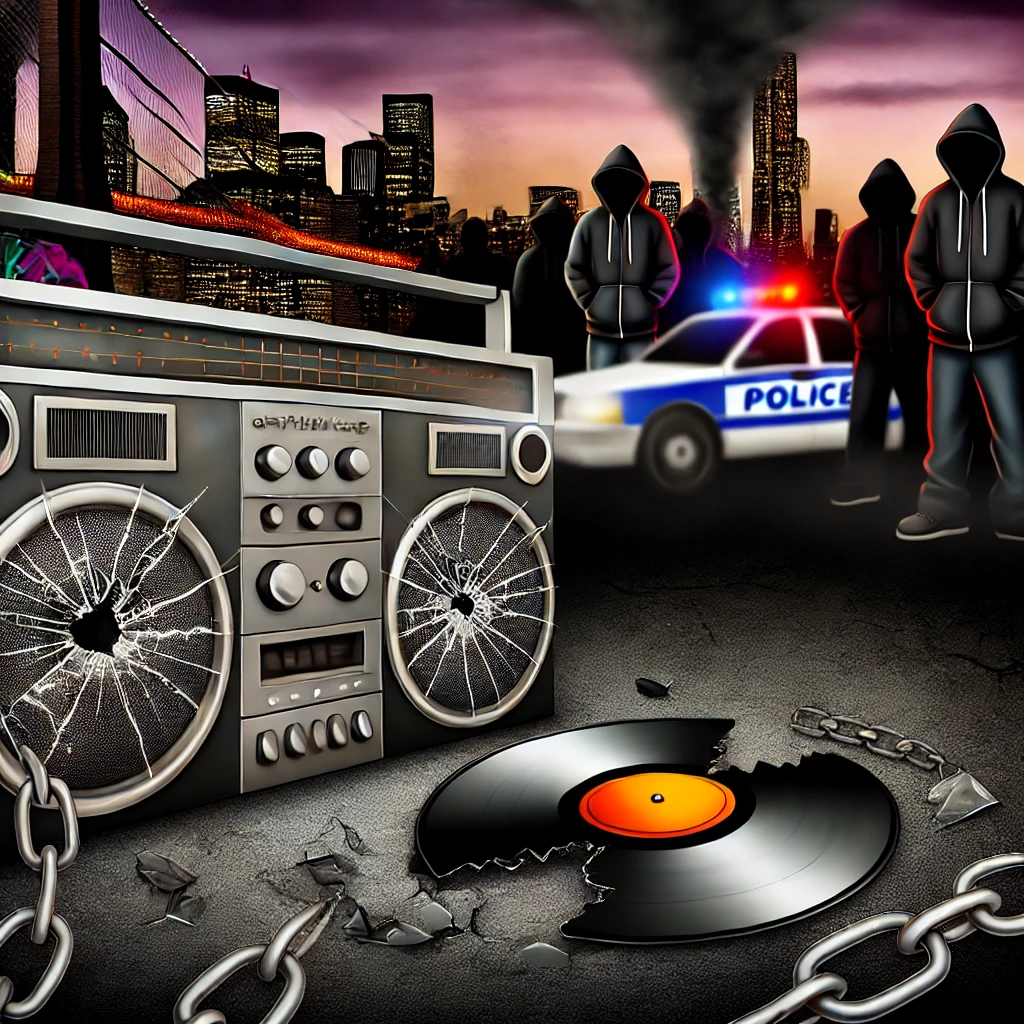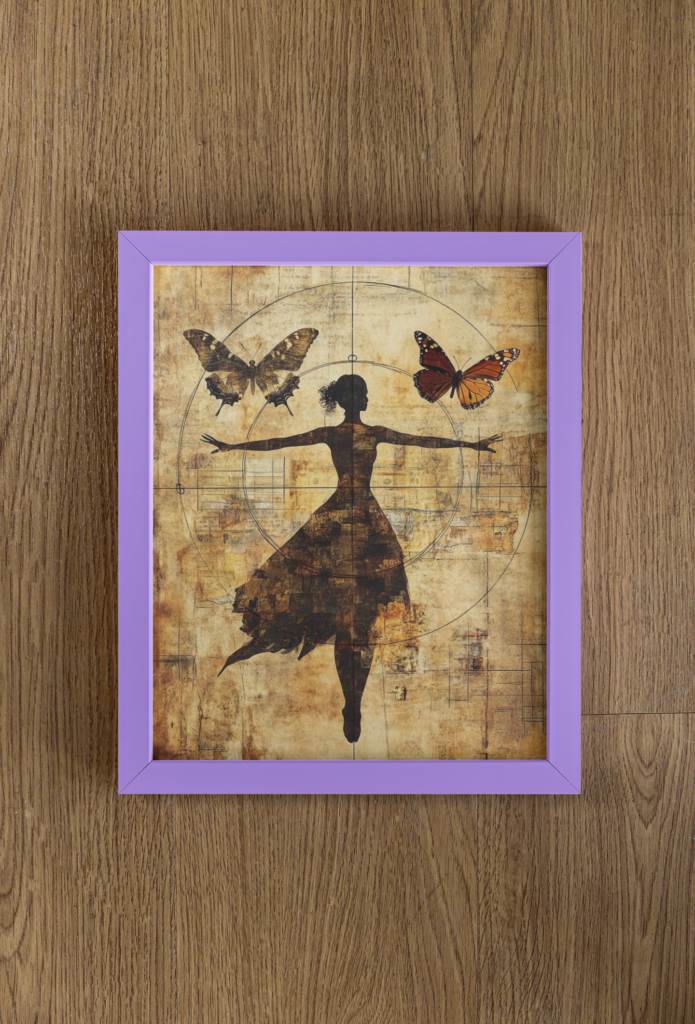HIP HOP LYRICS VIOLENCE
8 min read #1,984 words
Delve into the impact of hip hop lyrics violence on culture and society. Explore the complex narratives and societal reflections.

Photo by Jasmin Chew on Unsplash
Unraveling Hip-Hop Lyrics Violence
In delving into the realm of hip-hop, it is essential to comprehend the role that violence plays within the lyrical content. By exploring the roots and progression of the hip-hop culture, one can uncover the significant impact of violence on the genre.
Origins and Evolution of Hip-Hop Culture
The origins of hip-hop culture can be traced back to the streets of New York City in the 1970s, emerging as a form of artistic expression for marginalized communities. Rooted in African American and Latino experiences, hip-hop served as a platform for voicing social and political realities through music, dance, and graffiti art.
As the genre evolved over the decades, it became a powerful tool for highlighting issues of urban life, including poverty, inequality, and violence. Hip-hop artists drew inspiration from their surroundings, crafting lyrics that reflected the harsh realities of inner-city struggles and the systemic injustices faced by minority communities.
Impact of Violence in Hip-Hop
The impact of violence in hip-hop cannot be understated, as it has become a recurring theme in the lyrical narratives of many artists. While some use their platform to denounce violence and advocate for social change, others have been criticized for glorifying and perpetuating a cycle of aggression and conflict through their music.
It is crucial to recognize the dual nature of hip-hop’s portrayal of violence, which can both shed light on the harsh realities of urban life and perpetuate harmful stereotypes. By acknowledging the complex interplay between violence, artistry, and societal norms, we can better understand the multifaceted nature of hip-hop as a cultural force and a reflection of the lived experiences of its creators and listeners.
The Complex Narratives
In the realm of hip-hop, the exploration of violence within lyrics delves into two intricate narratives: the glorification and condemnation of violence in hip-hop lyrics, and the real-life consequences that extend beyond the music, affecting artists and communities alike.
Glorification vs. Condemnation of Violence in Lyrics
Hip-hop lyrics often walk a fine line between glorifying and condemning acts of violence. While some artists portray violence as a reflection of their reality or a means of storytelling, others use their platform to shed light on the harsh realities and consequences of violence in urban environments.
The below table provides a breakdown of the portrayal of violence in hip-hop lyrics:
| Narrative | Description |
|---|---|
| Glorification | Some lyrics glamorize violence, portraying it as a symbol of power, resilience, or street credibility. These lyrics may contribute to the perpetuation of negative stereotypes and normalization of violent behavior. |
| Condemnation | Conversely, other lyrics condemn violence, highlighting its destructive impact on individuals, families, and communities. These lyrics often serve as social commentary, aiming to raise awareness and provoke critical thought on the repercussions of violence. |
Real-Life Consequences on Artists and Communities
The portrayal of violence in hip-hop lyrics transcends artistic expression, carrying real-life repercussions for both artists and the communities they represent. The depiction of violence can deeply impact the mental health, reputation, and safety of artists, while also influencing perceptions and behaviors within communities.
Consider the following real-life consequences of violence in hip-hop lyrics:
| Impact | Explanation |
|---|---|
| Mental Health | Constant exposure to violent themes in lyrics can take a toll on artists’ mental well-being, leading to increased stress, trauma, and desensitization to violence. |
| Reputation | Artists who glorify violence may face backlash from critics, fans, and the media, potentially tarnishing their reputation and credibility both within and outside the music industry. |
| Community Influence | The portrayal of violence in hip-hop lyrics can shape societal norms and attitudes towards violence, especially among youth in urban communities. This influence can perpetuate cycles of violence or prompt conversations on social change. |
By unraveling the complex narratives surrounding violence in hip-hop lyrics, one can gain a deeper understanding of the multifaceted role this music genre plays in reflecting, challenging, and ultimately shaping perceptions and realities related to violence in society.
Societal Reflections
When examining the intersection of hip-hop lyrics violence with societal dynamics, two crucial aspects come into focus: systemic inequalities and urban violence, and the role of hip-hop as a voice for marginalized communities.
Systemic Inequalities and Urban Violence
Hip-hop lyrics violence often serves as a reflection of the systemic inequalities and urban violence prevalent in many communities. These inequalities, rooted in factors such as poverty, racial discrimination, and lack of resources, can contribute to the perpetuation of a cycle of violence. Hip-hop artists frequently draw from their lived experiences in these environments to depict the harsh realities faced by individuals in marginalized communities.
The following table illustrates the correlation between systemic inequalities and urban violence:
| Systemic Inequalities | Urban Violence |
|---|---|
| Economic Disparities | Gang Violence |
| Lack of Access to Education | Drug-Related Crimes |
| Police Brutality | Community Tensions |
Hip-Hop as a Voice for Marginalized Communities
In contrast to being solely a medium that portrays violence, hip-hop also functions as a platform for marginalized communities to voice their struggles, resilience, and aspirations. Through their lyrics, artists address issues such as social injustice, political disenfranchisement, and racial discrimination, providing a voice for those whose stories are often overlooked or misrepresented.
The table below outlines how hip-hop serves as a voice for marginalized communities:
| Empowering Narratives | Social Justice Advocacy |
|---|---|
| Resilience and Survival Stories | Calls for Systemic Change |
| Cultural Identity Expression | Community Empowerment Initiatives |
| Challenging Stereotypes | Amplifying Marginalized Voices |
By acknowledging the systemic inequalities and urban violence portrayed in hip-hop lyrics and recognizing the genre’s role in amplifying the voices of marginalized communities, a more comprehensive understanding of the societal reflections within hip-hop culture can be achieved.
Influence on Youth Culture
Examining the impact of hip hop on youth culture reveals its significant role in shaping perceptions of violence and fostering resilience and empowerment through its lyrics.
Hip-Hop’s Role in Shaping Youth Perceptions of Violence
Hip hop music plays a pivotal role in influencing how young individuals perceive violence. Through powerful lyrics and storytelling, hip hop artists often portray the harsh realities of urban life, including themes of violence, poverty, and discrimination. These narratives can both reflect and challenge societal norms, providing a platform for youth to engage with complex issues surrounding violence.
| Youth Perception | Description |
|---|---|
| Exposure to Violence | Hip hop music exposes youth to different forms of violence, ranging from street crime to systemic inequalities. |
| Awareness and Critique | Through hip hop lyrics, young listeners gain awareness of social injustices and are encouraged to critically evaluate the underlying causes of violence within their communities. |
| Empowerment Through Expression | Hip hop empowers youth to express their own experiences with violence, providing a voice for marginalized individuals and communities who often face discrimination and oppression. |
Resilience and Empowerment Through Lyrics
In addition to shaping perceptions of violence, hip hop lyrics also serve as a source of resilience and empowerment for youth facing adversities. Many hip hop artists draw from personal experiences to craft lyrics that resonate with listeners, offering messages of strength, perseverance, and hope in the face of challenges.
| Empowerment Theme | Description |
|---|---|
| Self-Empowerment | Hip hop lyrics promote self-empowerment by emphasizing the importance of resilience, self-confidence, and overcoming obstacles in the pursuit of success. |
| Community Support | Through themes of unity and solidarity, hip hop lyrics encourage youth to support one another, build strong communities, and advocate for social change to combat violence and inequality. |
| Positive Reinforcement | Positive affirmations and motivational messages in hip hop lyrics inspire young listeners to believe in themselves, pursue their dreams, and strive for a better future despite facing violence and adversity. |
By recognizing the dual role of hip hop in shaping youth perceptions of violence and offering empowerment through its lyrical content, we can better understand the profound impact this genre has on the cultural, social, and personal identities of young individuals within urban communities.
Beyond the Music Industry
Exploring the impact of hip-hop violence goes beyond the boundaries of the music industry, inviting insights from cultural critics and discussions on how hip-hop addresses social issues.
Cultural Critics’ Perspectives on Hip-Hop Violence
Cultural critics play a vital role in analyzing and interpreting the cultural significance of hip-hop violence. They delve into the nuances of lyrics, music videos, and performances to deconstruct the messages conveyed by artists. By examining the portrayal of violence in hip-hop, critics shed light on the societal reflections embedded within the genre, sparking important conversations about representation, exploitation, and authenticity.
| Critic | Perspective on Hip-Hop Violence |
|---|---|
| Dr. Smith | Critiques the glorification of violence in hip-hop and its impact on listeners |
| Prof. Johnson | Analyzes the nuanced portrayal of urban violence in hip-hop narratives and its interaction with systemic inequalities |
| Journalist Lee | Explores how hip-hop artists navigate the thin line between authenticity and commercial success in the context of violent themes |
Addressing Social Issues Through Hip-Hop
Hip-hop has emerged as a powerful platform for addressing social issues, including violence, inequality, and injustice. Artists use their lyrics and music to amplify the voices of marginalized communities, shining a spotlight on the struggles and resilience of those affected by violence. Through storytelling, advocacy, and activism, hip-hop artists challenge the status quo, provoke thought, and inspire change in society.
| Artist | Impact on Addressing Social Issues Through Hip-Hop |
|---|---|
| MC Rebel | Advocates for peace and unity in communities impacted by violence through his music |
| DJ Justice | Raises awareness about police brutality and systemic racism through powerful lyrical content |
| Rapper Hope | Uses storytelling to shed light on the realities of gang violence and its devastating effects on urban youth |
By exploring the perspectives of cultural critics and understanding how hip-hop addresses social issues, we gain a deeper appreciation for the role of the genre in reflecting, challenging, and reshaping societal narratives surrounding violence.
A Historical Lens
Taking a historical perspective on hip-hop reveals a profound legacy that spans over half a century. The genre has not only influenced music but has also played a significant role in shaping cultural norms, societal conversations, and even political movements.
Legacy of Hip-Hop Over Half a Century
Hip-hop emerged in the Bronx in the 1970s as a form of creative expression and resistance against social injustices. From its humble beginnings at block parties to becoming a global cultural phenomenon, hip-hop has evolved, diversified, and continues to thrive as a voice for the voiceless.
Over the past 50 years, hip-hop has birthed legends and pioneers who have revolutionized music and challenged the status quo. Artists like Grandmaster Flash, Public Enemy, Tupac Shakur, and Lauryn Hill have used their platform to address issues of violence, inequality, and empowerment within their communities.
The evolution of hip-hop reflects not only changes in music but also shifts in societal values, political climates, and youth culture. The genre’s ability to adapt and innovate has allowed it to remain relevant and influential across generations, transcending boundaries of race, class, and geography.
Promoting Understanding and Positive Change through Education and Advocacy
As hip-hop continues to shape cultural narratives, it has become a powerful tool for education and advocacy. Schools, universities, and community organizations have integrated hip-hop into their curricula to engage students in critical discussions about race, identity, and social justice.
Through initiatives like hip-hop studies programs and youth mentorship projects, educators and mentors are leveraging the genre’s influence to promote positive change in urban communities. By providing a platform for marginalized voices and promoting cultural awareness, hip-hop education seeks to empower individuals and foster a deeper understanding of the complex issues facing society.
By acknowledging the historical legacy of hip-hop and its potential for promoting understanding and positive change, we can appreciate the genre’s enduring impact on music, culture, and social movements. Through continued advocacy, education, and dialogue, hip-hop remains a dynamic force for social change and empowerment.







